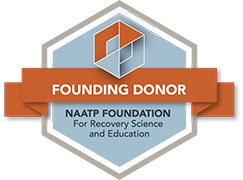Guide to Life After Rehab
Leaving treatment can be a scary prospect for many recovering addicts. Addiction is a life-long disease that you need to work on continuously, even when you leave your treatment center. In fact, in some ways – you have to work at it harder when you are back in the “real world”.
At High Watch, we try to give our guests the tools they need to live a sober life once they walk out our doors. Your clinicians and your social network developed here cannot be with you once you leave. Here are some things you can do.
1: Work hard and be committed to your post treatment plan
You will have developed a plan for leaving rehab whilst you were still there. It’s important that you really engaged with this process when you still had the 24 hour support around you. Maximize your time with people on site by asking questions and seeking advice as to what the best solutions are for you, personally. For most people, your plan will include contact with your clinicians, rigorous attendance of AA meetings, joined with an active Alumni program that will provide ongoing support after you leave. For many recovering addicts, this treatment plan will improve your chances of avoiding relapse. This is why it’s so important that you engage in the process whilst you are planning it, try to spot any future stumbling blocks you may encounter and put something in place that you know will work for you.
2: Gather together a recovery support team
Assemble your recovery team. This team can include clinicians, health care professionals, supportive family and friends, fellow rehab graduates and friends from 12 step meetings. We all know that connection is the opposite of addiction so having a good support team around you is vital for long lasting recovery. As part of your post recovery treatment plan, make sure you make a list of all the people you have in your life who will support you in your recovery. Keep this list and add to it overtime you make a new recovery friend. It’s also always a nice thing to be able to see how much support and love you have in your life.
3: Regularly attend 12 Step Meetings
Make sure you know where all your local meetings are and commit to attending as many as you can, especially in the first few weeks of leaving treatment. This community of people will be your sobriety anchor and will keep you tethered even when things get stormy.
4: Live healthily
Exercise: According to a study by Frontiers in Psychiatry “Epidemiological studies reveal that individuals who engage in regular aerobic exercise are less likely to use and abuse illicit drugs.” Exercise releases endorphins and raises serotonin levels which raise your mood. If your fitness isn’t what it was before addiction, don’t worry! Exercise doesn’t have to mean running marathons. Organize to go for a weekly walk with friends. Take up exercise classes like yoga or Thai Chi. Swimming is also a really beneficial form of exercise for people who struggle with joint pain from running or walking.
Food is another aspect to consider once you leave rehab. Whilst you were in treatment, you had all your meals cooked for you and you would have been eating regularly and well. Try to continue this good habit when you leave. Eating fresh vegetables with every meal and making sure you get enough nutrients daily will help enormously with the way you feel. Remember the first part of the acronym H.A.L.T is “hungry”. Don’t let yourself get hungry. It’s also tempting to over-eat when you leave rehab, especially to overindulge on sugary substances. Sugar is like a drug in the way it reacts with our brain chemistry and it is also extremely addictive. It also cause spikes in your mood, much like when you were using. This can be a trigger for some people, so try to avoid eating too many sugary sweets and snack on healthier options like nuts or vegetable sticks.
Sleep: Sleep is vital. Regular, quality sleep is so important for an enhanced mood. When in active addiction, your sleep patterns would have been completely irregular, and it is important not to slip back into your old habits of going to bed late and getting up late. Try to switch screens off an hour before you go to bed, get a bedtime routine going whereby you spend that hour, meditating, praying, or simply preparing yourself for the day ahead. Sleeping with your curtains open is another trick that could help you wake up at a reasonable time. It is also much nicer to be woken up with natural light than by an alarm clock.








